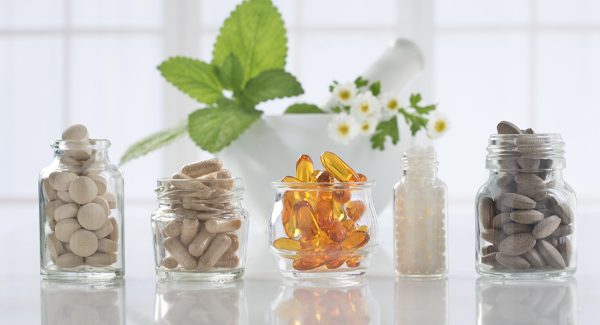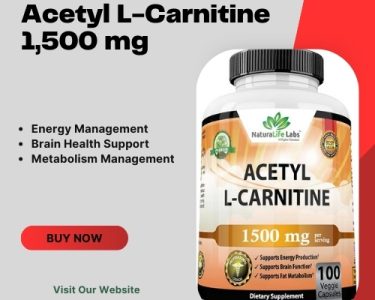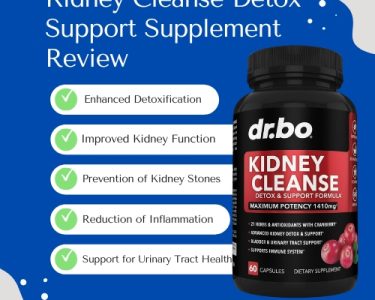With the help of food and herbal supplements, some arthritis sufferers experience improved health or symptom relief. There are many options, but there isn’t much reliable, scientific proof that they actually function. Due to a number of reasons, some plants and supplements have undergone testing on a lesser scale than pharmaceuticals. Most significantly, it is challenging to get high-quality research on natural products and dietary supplements because it is expensive to conduct research and difficult for manufacturers to patent natural items. To determine whether or not herbs and supplements will be effective for arthritis. more research is nearly always required.
However, the decision to try them out is entirely up to you. They might be effective for some arthritis sufferers but not for others. Additionally, they won’t take the place of your arthritis medications even if they temporarily improve your mood.
Inform your doctor before using any dietary supplements, including vitamins and minerals, or herbal remedies. Some herbs and supplements interact with medications or even perform the same function, which increases the impact of your medications. So be sure to tell your doctor about all of your arthritis medications.
Additionally, not many herbs or supplements that you can buy at health food stores, online, at alternative medicine fairs, or from other sources have been subjected to testing. Some items might not even contain what is claimed on the bottle or packaging. Or the dosage’s real concentration can be somewhat different from what is shown on the label. So before you buy or attempt anything, exercise prudence and common sense. To improve the security and efficacy of your treatment plan, speak with a doctor who is educated about dietary supplements and can advise you on the brands of high-quality supplements to choose. The highest level of education and comfort with using dietary supplements, nutrition regimens, and lifestyle changes in conjunction with conventional medical treatments is held by doctors who specialise in integrative medicine. If you decide to use supplements with your prescriptions to control arthritis and enhance wellbeing, working together with your rheumatologist and integrative doctor may help ensure the safest, most successful treatment plan.
To learn about some of the benefits and drawbacks of dietary supplements and diets, click here for an overview of utilising herbs and supplements for arthritis.
The list of dietary supplements that patients have taken to support their health is provided below. Be aware that studies on these remedies and other arthritis treatments are conducted over time to either encourage or dissuade their use. To get a complete assessment of risks, benefits, and potential interactions with your drugs, consult a doctor who is experienced about natural products. Unsaponifiables from avocado and soy (ASU):
a natural vegetable extract derived from 2/3 soybean oil and 1/3 each of avocado oil. may reduce pain or enhance performance.
Black Currant Oil:
a natural supplement containing between 15% and 20% gamma-linolenic acid (GLA). omega-3 and omega-6 lipids are abundant. could reduce inflammation.
Borage Oil:
produced using 20–26% GLA. Likewise known as borage seed oil. Rich in essential fatty acids that may function to reduce inflammation or stop inflammatory cells from spreading.
Boswellia:
Likewise known as Indian Frankincense. It may reduce pain and enhance joint functionality because it is made from the boswellia serrata plant.
Bromelain:
Supplement prepared with enzymes from pineapple. Some arthritis sufferers discover that it might lessen joint pain.
Capsaicin:
made using hot chilli pepper oil. Topical cream, gel, or patches can all be used to apply it. It can prevent you from feeling pain in a joint or muscle because it reduces the quantity of substance P, a neurotransmitter that conveys pain signals to the brain. After applying capsaicin to the skin, use gloves to protect your hands and avoid touching your eyes or mouth.
Cat’s Claw:
Made-from-wild vine supplement that can be found throughout Central and South America. potentially beneficial impacts on the immunological system.
Chondroitin Sulfate:
dietary supplement derived from cow, pig, or fish cartilage. It is intended to lessen pain and inflammation, enhance joint function, and assist in replacing worn-down cartilage in your joints. People with osteoarthritis typically use it.
Curcumin:
The turmeric root is the source of curcumin. This herbal remedy has strong anti-inflammatory properties, which may help reduce swelling and joint pain.
Devil’s Claw:
dietary supplement produced from a plant that grows naturally in southern Africa. used to treat back pain as well as joint discomfort and inflammation.
DHEA:
supplements synthesised from a hormone produced naturally in your adrenal glands, which are located above your kidneys. DHEA appears to benefit lupus patients and increase bone density, however there is little evidence that it benefits RA patients. Patients with breast, ovarian, testicular, or prostate cancer should stay away from DHEA since it has the potential to convert to oestrogen or testosterone.
DMSO:
likewise known as dimethyl sulfoxide. DMSO, a waste product of the paper industry, can be applied topically as a gel or cream. It is intended to increase joint mobility and reduce pain and inflammation. There is not a lot of research on DMSO and arthritis.
Evening Primrose:
fatty acid omega-6-rich herbal oil. It is employed to reduce pain and inflammation, and some research suggests that it may help with morning stiffness.
Fish Oil:
supplements of genuine fish liver oil in capsule form, or fish you eat on a regular basis. omega-3 fatty acid-rich. could lessen morning stiffness, joint pain, and inflammation.
Flaxseed Oil:
herbal dietary supplement administered as a pill. Alpha-linoleic acid (ALA), an essential omega-3 fatty acid that helps to create healthy cells, is abundant in it. Although it is used to reduce joint inflammation. When compared to flaxseed oil, eating ground flaxseed offers higher fibre and ALA.
Ginger:
Natural root that has been powdered, consumed as tea, pickled, or candied food, or taken as a pill or oil. could lessen inflammatory-related substances in your body. could potentially provide pain relief comparable to aspirin. helpful in reducing nausea.
GLA:
Other herbs like evening primrose oil and borage oil contain gamma linoleic acid. Omega-6 fatty acids are abundant. used as a meal or supplement to reduce edoema, stiffness, and joint pain.
Glucosamine Sulfate:
dietary supplement manufactured from fish shells, such as those of shrimp or crabs (avoid if with shellfish allergy). With the help of glucosamine, osteoarthritis-related joint discomfort can be reduced, joint mobility can be increased, and cartilage degradation is slowed.
Green-lipped Mussel:
In the waters off New Zealand, one can find shellfish. Its tough shells are powdered and placed in capsules. It contains a lot of omega-3 fatty acids, which may reduce inflammation and relieve joint discomfort.
Melatonin:
supplement that contains a hormone that is naturally produced in your brain. Your circadian rhythms, which inform your brain when to sleep and wake up, are under your control thanks to the hormone. If your arthritis symptoms keep you up at night, melatonin supplements could improve your ability to sleep. With this supplement, nightmares or vivid dreams might happen.
MSM:
Methylsulfonylmethane is an organic sulphur substance that is present in both plants and mammals. It’s frequently administered as a cream that you spread on your skin or in capsule form. intended to lessen inflammation and pain.
Pine Bark:
herbal extract made from tree bark. Also known as Pycnogenol®, a well-known brand name. Procyandin, an antioxidant that may inhibit pro-inflammatory enzymes, is present in it. There isn’t much data to back up its effectiveness in RA.
Rose Hips:
Made from the small fruits of wild rose bushes, this herbal supplement. found in teas and pill form. Rich in natural compounds including anthocyanins and polyphenols that may reduce inflammation in the joints. Contains antioxidant vitamin C as well.
Sam-E:
S-adenosyl methionine is abbreviated. It is produced naturally in the body and serves as a precursor to serotonin, which is involved in mood regulation. It is used as a supplement, taken as a capsule or pill, to alleviate pain, stiffness, and swelling, regenerate cartilage, and enhance mobility. Sam-E may also aid in lifting low mood.
St. John’s Wort:
produced from a flowering plant that is primarily found in Europe, a herbal supplement. It’s primarily used to lessen mild to severe depressive symptoms, although some claim it can also lessen arthritis pain and inflammation. Do not combine with HIV medicines or birth control.
Stinging Nettle:
Made from a common plant that irritates your skin if you brush across it, a herbal supplement. It can be consumed, added to food while cooking, or taken as a supplement. It may be most effective for hay fever and is used to reduce pain and inflammation. Its application in arthritis has mostly been investigated in vitro (test tubes) and may be useful in easing joint discomfort.
Thunder God Vine (Tripterygium wilfordii):
An herbal supplement derived from a plant is used to treat RA’s painful joints and inflammation. A sizable study compared it to the RA medication sulfasalazine (Azulfidine®), which was found to be helpful but had a number of mild to moderate adverse effects.
Valerian:
supplement manufactured from herbs and plant roots. can be consumed as a tea or in capsule form. It is mostly used to treat insomnia, but it may also reduce discomfort, and it has sedative and antispasmodic properties that could help to loosen up stiff muscles and joints.
Vitamin C:
a water-soluble vitamin, sometimes referred to as L-ascorbic acid, that is found in some foods like citrus fruits by nature. has been demonstrated to increase the body’s collagen and connective tissue.
Vitamin D:
This is actually a hormone that is produced by the conversion of inactive vitamin D to its active form on the skin and is utilised by every cell in the body. Many individuals who do not receive enough sunlight exposure are low in this vitamin, which helps to increase bone density. Vitamin D tablets help replenish low levels while protecting skin from sun damage. Taking excessive quantities of vitamin D over an extended period of time can make it dangerous, so be sure your doctor routinely checks your vitamin D-25 OH levels.
While there is conflicting evidence on the efficacy of most CAM therapies for arthritic symptoms, some exhibit potential. These treatments will probably be beneficial to you as a part of your overall arthritis treatment strategy, but they won’t provide a miracle cure for your symptoms or enable you to quit taking your meds.




